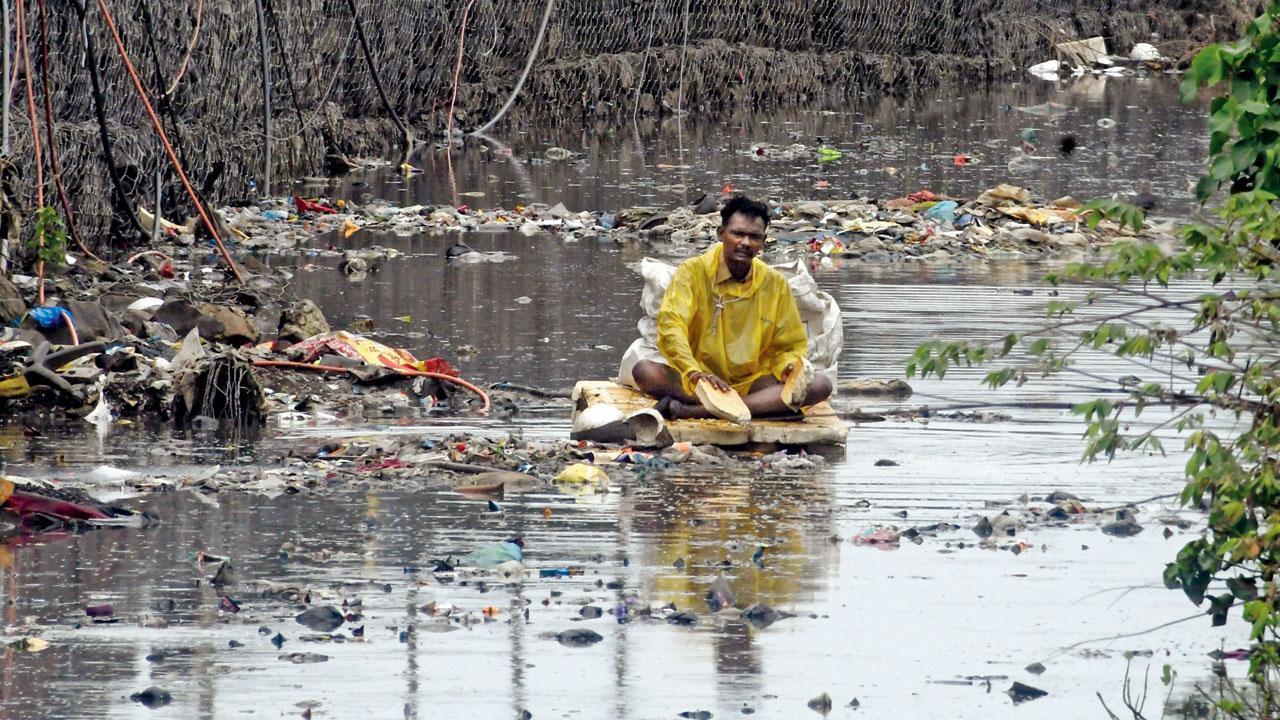Up until July 15, there have been 104 cases of leptospirosis, which represents a significant increase compared to the 65 cases reported for the entire month of July last year

A worker tries in vain to clean up the Mithi river. Pic/Ashish Raje
Are you sick yet? If you aren’t, it’s time to be even more vigilant. Amidst increasing incidence of monsoon ailments and heavy rainfall, the health department of the Brihanmumbai Municipal Corporation has issued a public health appeal to practise prevention against leptospirosis.
ADVERTISEMENT
Up until July 15, there have been 104 cases of leptospirosis, which represents a significant increase compared to the 65 cases reported for the entire month of
July last year.
Additional Commissioner (Health) Sudhakar Shinde told mid-day that out of the 24 BMC wards, so far, more incidences of lepto have been noticed in E Ward, L Ward, and M East ward. However, he could not provide the figures for the same.
Leptospirosis is a disease that spreads from animals like rodents and cattle to humans. Most lepto cases in Mumbai occur during the monsoon as parts of the city experience severe waterlogging. Often, rat urine mixes with contaminated water that can seep in through exposed skin and wounds as people wade through waterlogged areas.
Dr Vikrant Shah, an infectious disease specialist at Zen Multispeciality Hospital, said there are two types of leptospira: icteric leptospirosis (with jaundice) and anicteric leptospirosis (without jaundice).
The anicteric features of leptospirosis are a triad of three conditions: high-grade fever, calf tenderness, and red eyes. While this is the milder form of the illness, icteric leptospirosis can lead to severe complications. “The type of leptospira with jaundice can be very serious,” Dr Shah said.
 Subscribe today by clicking the link and stay updated with the latest news!" Click here!
Subscribe today by clicking the link and stay updated with the latest news!" Click here!







